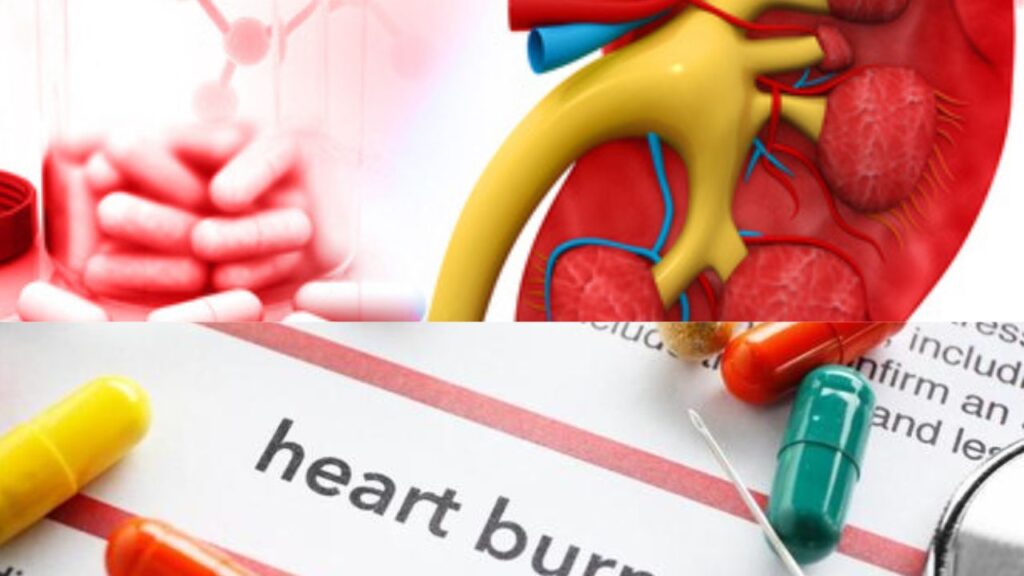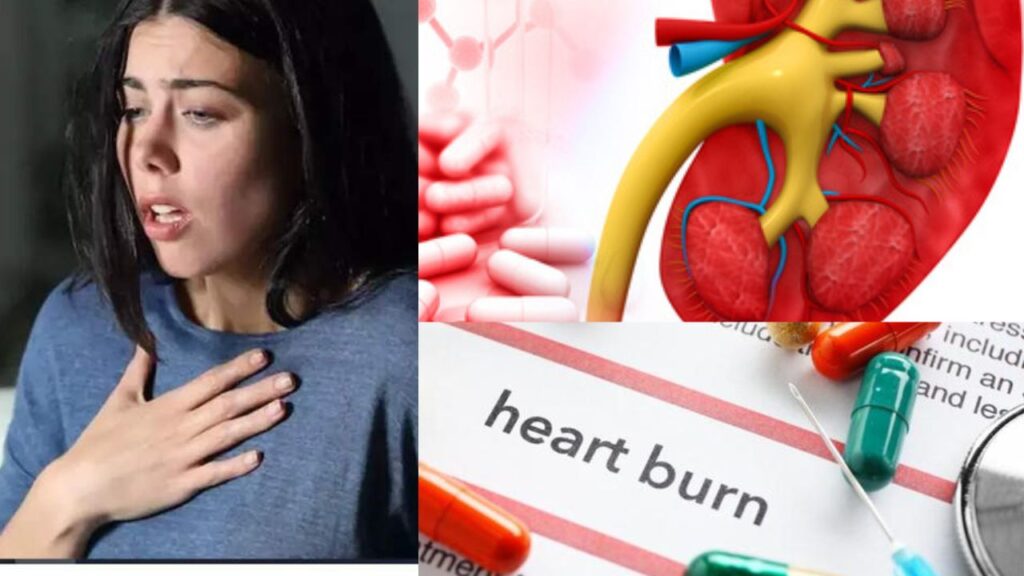Kidney health & heartburn: Common medications for ‘regular’ issues that can lead to kidney failure










Kidney Health and Heartburn: Everyday Medications That May Lead to Kidney Damage
Many people experience heartburn on a regular basis and turn to medications like proton pump inhibitors (PPIs) and H2 blockers for relief.
These drugs lower stomach acid production and provide quick comfort from burning sensations in the chest and stomach.
However, growing research suggests that long-term use of PPIs may increase the risk of kidney damage.
Medical experts caution doctors to weigh the benefits against potential risks before prescribing PPIs, especially for long-term use.
They recommend patients take the lowest effective dose for the shortest time possible.
Unfortunately, many individuals continue using these medications far longer than necessary, often without medical supervision.
What Are Proton Pump Inhibitors and H2 Blockers?
PPIs and H2 blockers are the main medications used to treat heartburn, acid reflux, and stomach ulcers.
Common PPIs: Prilosec, Nexium, Prevacid, Protonix
Common H2 Blockers: Pepcid, Zantac
PPIs work by blocking acid pumps in the stomach, while H2 blockers reduce acid production by targeting histamine receptors.
PPIs generally provide stronger, longer-lasting acid suppression, making them the go-to option for severe or persistent cases.
Because they are effective and widely available over the counter, many people use them continuously for weeks—or even years.
How PPIs May Harm the Kidneys
Recent studies link long-term PPI use to both acute kidney injury and chronic kidney disease (CKD):
A 2017 study by Karolinska Institutet found that PPI users were 26% more likely to develop CKD compared to those using H2 blockers. Higher doses were linked to greater risks.
Research from Washington University School of Medicine tracking over 125,000 patients revealed that PPIs may cause “silent” kidney damage, developing slowly over years without obvious early symptoms.
A pharmacy journal review confirmed that PPIs can trigger both short-term and long-term kidney problems.
Possible Mechanisms
PPIs may damage kidneys through
Interstitial nephritis – inflammation of kidney tissue that can lead to permanent scarring.
Mineral and electrolyte imbalance – disrupting essential functions needed for kidney health.
Cellular changes – interfering with normal kidney cell activity and gradually reducing kidney function.
Often, kidney damage from PPIs goes unnoticed until it has advanced to a serious stage. Routine blood and urine tests are the only reliable way to detect early decline.
What Patients and Doctors Can Do

For doctors: Carefully evaluate the risks and benefits before prescribing PPIs, especially for long-term use. Prescribe the lowest effective dose for the shortest necessary period.
For patients:
Don’t stop PPI treatment suddenly—consult your doctor first.
Discuss alternative options, including dose reduction, switching to H2 blockers, or lifestyle modifications.
If you have kidney disease, diabetes, or high blood pressure, schedule regular kidney function tests.
Some doctors may suggest H2 blockers instead of PPIs, since they appear to carry a lower risk of kidney complications.
Along with medication, dietary changes—like avoiding trigger foods, eating smaller meals, and maintaining a healthy weight—can also help manage heartburn naturally.
Reference Studies
Karolinska Institutet Study – Heartburn medicine and kidney disease risk
Washington University – PPIs linked to gradual kidney damage
Kidney International – Long-term PPI use may cause kidney failure
University at Buffalo – Heartburn meds increase kidney disease risk
NPR Health Report – Acid reflux drugs and kidney disease risk
Important Message
Proton pump inhibitors (PPIs), widely used for heartburn and acid reflux, may cause hidden kidney damage if taken long-term or in high doses.
Medical experts recommend using the lowest effective dose for the shortest necessary period, and only under a doctor’s guidance. Patients should never stop PPIs suddenly without consulting their physician.
People with kidney disease, diabetes, or high blood pressure should get regular kidney function tests if they are using PPIs. In some cases, switching to H2 blockers or lifestyle changes may be safer alternatives.

Disclaimer: This article is for informational purposes only and should not replace professional medical advice. Always consult your healthcare provider before making changes to your medication.
FAQs
What are PPIs and H2 blockers?
PPIs (like Prilosec, Nexium, Prevacid, Protonix) and H2 blockers (like Pepcid, Zantac) are medicines that lower stomach acid. They are used for heartburn, acid reflux, and ulcers.
Why are PPIs considered risky for the kidneys?
Studies show that long-term PPI use may increase the risk of kidney injury and chronic kidney disease. The risk is higher in older adults and people who take high doses.
How do PPIs cause kidney damage?
They can cause inflammation in the kidneys (interstitial nephritis), affect mineral balance, and slowly reduce kidney function over time.
What are the early symptoms of kidney damage from PPIs?
There are usually no early warning signs. Kidney damage often develops silently and is detected only through blood and urine tests.
Are H2 blockers safer than PPIs?
Research suggests that H2 blockers may carry a lower risk of kidney damage compared to PPIs. However, they may not be as strong for severe acid reflux.
Should I stop taking PPIs if I use them?
Do not stop suddenly on your own. Talk to your doctor about lowering the dose, switching to another medicine, or making lifestyle changes.
What lifestyle changes can help with heartburn?
Avoid trigger foods (spicy, fried, or acidic foods), eat smaller meals, don’t lie down right after eating, lose weight if needed, and limit alcohol and smoking.
The post Kidney health & heartburn: Common medications for ‘regular’ issues that can lead to kidney failure appeared first on .
The post Kidney health & heartburn: Common medications for ‘regular’ issues that can lead to kidney failure appeared first on .
The post Kidney health & heartburn: Common medications for ‘regular’ issues that can lead to kidney failure appeared first on .
The post Kidney health & heartburn: Common medications for ‘regular’ issues that can lead to kidney failure appeared first on .
The post Kidney health & heartburn: Common medications for ‘regular’ issues that can lead to kidney failure appeared first on .




